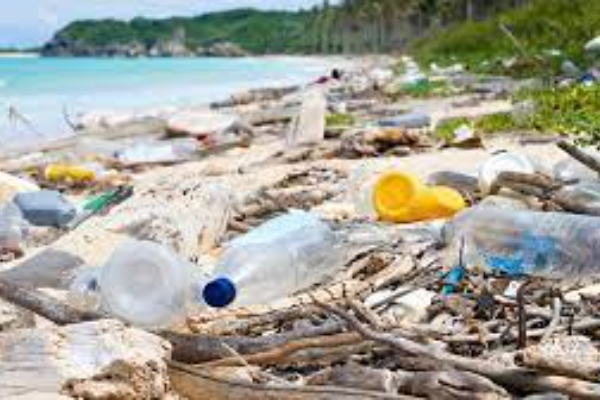Nairobi, June 5, 2025 — A coalition of Kenyan civil society organizations (CSOs) has called on the government and private sector to take decisive and immediate action to end plastic pollution across its entire lifecycle. Marking this year’s World Environment Day under the theme #EndingPlasticPollution, the CSOs warned of the escalating crisis that poses a growing threat to ecosystems, public health, and climate stability.
Despite the 2017 ban on plastic bags in Kenya, plastic pollution remains a persistent challenge. Globally, plastic production and consumption have reached unsustainable levels, demanding collective and coordinated efforts to address the crisis at its source. In Kenya, inadequate enforcement of existing regulations, underfunding, and industry lobbying have undermined progress, while false solutions such as recycling and waste-to-energy continue to dominate the national response.
A recent study by the Centre for Environment Justice and Development revealed the presence of toxic chemicals in plastic consumer products, such as toys. These chemicals—linked to cancer, respiratory diseases, diabetes, and reproductive disorders—pose serious risks to human health, particularly for vulnerable groups including women, children, and marginalized communities.
CSOs stressed the need for regulatory frameworks to address the chemical additives in plastics. As a net importer of plastic products, Kenya must implement stricter controls on imports, ensure hazardous materials are not recycled, and prohibit products containing toxic chemicals. Effective border controls and mandatory testing are essential to prevent harmful products from entering the market.
The coalition criticized corporate influence over environmental policy, citing tactics like greenwashing, aggressive lobbying, and litigation that delay regulatory progress. They argue that recycling alone cannot solve the crisis and call instead for reduced plastic production, corporate accountability, and recognition of those bearing the brunt of plastic waste: waste pickers.
Extended Producer Responsibility (EPR) systems must be inclusive, placing waste pickers—who form a significant portion of the informal waste sector—at the center. In urban Kenya, women comprise 40–50% of waste pickers, yet remain underpaid, unrecognized, and exposed to unsafe conditions. The CSOs urged that EPR schemes fairly compensate and protect these workers.
The coalition also highlighted the link between plastics and climate change. With 99% of plastics derived from fossil fuels, emissions occur throughout the plastic lifecycle—from production to disposal—further fueling the climate crisis. Kenya’s recent move to license offshore oil and gas exploration, particularly in sensitive ecological areas like Lamu, could worsen marine plastic pollution. Offshore operations often introduce plastic waste into fragile ecosystems such as coral reefs, mangroves, and seagrass beds, which are crucial for climate resilience and local livelihoods.
The CSOs urged the government to align its policies with its global commitments. Plastic pollution must be tackled from production to disposal, not just at the waste management level. Kenya should lead by example and reject investments that expand the petrochemical and plastic industries.
On the international front, the coalition expressed disappointment at the slow progress in negotiations for a legally binding Global Plastics Treaty. They called on Kenya to show leadership by pushing for an ambitious agreement that prioritizes production caps, human health, environmental justice, and time-bound targets to eliminate plastic pollution.
Demands to the National Government include:
- Fully enforcing and expanding the ban on single-use plastics, and closing loopholes that allow illegal imports.
- Ensuring consistent funding and political will for implementing plastic regulations.
- Restricting toxic chemicals in plastic consumer products and enforcing import controls.
- Supporting local innovators developing safe, affordable plastic alternatives.
- Championing a binding global treaty that includes production caps and rights-based approaches.
- Rejecting projects that support plastic and petrochemical expansion, including offshore drilling.
Demands to Private Sector Actors include:
- Ceasing the production and sale of plastics with toxic additives or those that are non-recyclable.
- Funding proper waste management and embedding waste pickers into EPR systems with fair pay and protections.
- Aligning sustainability strategies with science-based plastic reduction targets rather than over-relying on recycling.
- Collaborating transparently with civil society and frontline communities to co-create equitable, science-driven solutions.
Plastic pollution is a global crisis that requires bold national leadership and global cooperation. The coalition insists that Kenya has both the opportunity and the responsibility to lead the way in shifting towards a cleaner, safer, and more sustainable future.








